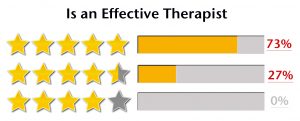Wellness Home Active Therapies
Envision a better future
Medical hypnosis to assist with healing

Hypnotherapy Defined
 If you’ve ever been so completely absorbed in some activity or daydream where you lost all sense of place & time, then you’ve experienced the ‘altered’ state of mind that’s called hypnosis. It’s a naturally occurring state that most everyone has experienced hundreds of times. Clinical hypnotherapy simply uses this state to access the subconscious, where the work of healing is accomplished. Technically speaking, hypnosis is a state in which the critical faculty of the conscious mind is bypassed. Clients in hypnosis experience an extraordinary quality of relaxation, as well as a profound sense of awareness and a heightened responsiveness to positive ideas. Hypnosis allows people to directly access their inner strengths and use more of their potential to achieve their therapeutic goals. Hypnosis has no adverse side effects.
If you’ve ever been so completely absorbed in some activity or daydream where you lost all sense of place & time, then you’ve experienced the ‘altered’ state of mind that’s called hypnosis. It’s a naturally occurring state that most everyone has experienced hundreds of times. Clinical hypnotherapy simply uses this state to access the subconscious, where the work of healing is accomplished. Technically speaking, hypnosis is a state in which the critical faculty of the conscious mind is bypassed. Clients in hypnosis experience an extraordinary quality of relaxation, as well as a profound sense of awareness and a heightened responsiveness to positive ideas. Hypnosis allows people to directly access their inner strengths and use more of their potential to achieve their therapeutic goals. Hypnosis has no adverse side effects.
Myths Debunked
For centuries, the reality about hypnosis has been distorted by sensational novels, B-movies and disreputable magicians. Contrary to popular opinion, hypnosis is a science-backed phenomena that is extremely effective in addressing a wide variety of physical and psychological conditions to bring about lasting positive change. Some people fear that in hypnosis they will lose control, surrender their will, and be dominated by another. Completely untrue. On the contrary, in hypnosis you develop and employ both greater power and self-control. The therapist is merely a guide. All ‘control’ resides exclusively with the client.
Here is the truth about the most common myths.
In hypnosis:
- You cannot be compelled to do anything against your will
- You don’t lose consciousness
- You don’t blurt out secrets
- You don’t lose control of bodily functions
- You don’t develop amnesia
- You cannot get ‘stuck’ in the state
- Hypnosis is not an instantaneous magic cure
- Hypnosis is in fact medically approved
Benefits
Some of the many benefits possible from hypnotherapy:
- manage chronic pain
- soothe Gastrointestinal issues
- overcome deep rooted fears, anger, and phobias
- heal old traumas
- quicker recovery from surgery
reduce stress - let go of addictions, cravings, and behaviors that no longer serve you
- relieve anxiety
- heal your body
- improve deep sleep
- empower you to change your thoughts and your life
- master your mind
- boost self-esteem
- plant new seeds to create a new future
What you can expect
During your first office visit, you’ll complete a simple (1-page) intake form and then meet with the therapist in his office. The first half of the session is devoted to simply learning more about your goals, how you’d like to improve your life. This often feels more like a friendly coffee-house chat than anything else. One of the goals of the therapist is to learn about your current and past strengths and successes, large or small. These form the basis of the therapeutic plan, which taps into your natural inner resources. Together, the client and therapist create a goal set and the therapist will then craft a therapy plan customized for each individual. Each session lasts between one and two hours, and most people start to see significant results within 3 to 6 sessions. You and your hypnotherapist will monitor and evaluate your progress over time.
For further reading:
Hypnosis House Call: A Complete Course in Mind-Body Healing– Steven Gurgevich M.D., Andrew Weil M.D.
Heal Yourself with Medical Hypnosis: The Most Immediate Way to Use Your Mind-Body Connection – Andrew Weil M.D., Gurgevich M.D.
Hypnosis: Questions & Answers – Bernie Zilbergeld, Gerald Edelstien, M.D.
The Neuroscience Editions: Hypnotic Realities, Hypnotherapy & Experiencing Hypnosis – Ernest L. Rossi, Ph.D. Milton H. Erickson M.D.
Healing in Hypnosis – Milton H. Erickson M.D., Ernest L. Rossi Ph.D.

Bob Comenole, CMS-CHT
Bob is a Certified Medical Support Hypnotherapist, specializing in pain management, stress reduction and behavioral change.
Bob’s Mission
Service
“Service to my clients is based on the wonderful work of Dr. Rachel Naomi Remen, who emphasizes that serving is different from helping. “Helping” is based on inequality; it is not a relationship between equals. When you help, you use your own strength to help those of lesser strength. When we help we may inadvertently take away from people more than we could ever give them; we may diminish their self-esteem, their sense of worth, integrity and wholeness. Helping incurs debt. When you help someone they owe you one. “Fixing” is a form of judgment. All judgment creates distance, a disconnection, an experience of difference. When you help you see life as weak; when you fix, you see life as broken. When you serve, you see life as whole….
Service is a relationship between equals.
I don’t help people, and I don’t fix them. Rather, I seek always to serve….”
Bob Comenole, CMS-CHt
Bob Comenole is a Certified Medical Support Hypnotherapist, specializing in pain management, stress reduction, and behavior change, among many other specialties. Since 1986, Bob has been on the faculty of several colleges, including Miami University, the State University of New York, Indiana University and Rensselaer Polytechnic Institute. Bob is the author of six books, and has received numerous awards for his writing, teaching and scholarship. Bob’s career has included stints of service to his community: he’s worked on staff at a suicide crisis center, as a counselor and advocate for victims of rape and domestic violence, as a widely recognized leader of youth mentoring programs, as a field worker at a homeless shelter, and as a group leader in nursing homes. Bob’s a military veteran who focuses on giving back to his fellow veterans, and a cancer survivor who prizes giving to other cancer patients. He’s also been a longtime activist for social justice. Bob has received the most advanced training in his field from the Hypnotherapy Academy of America, with instructors affiliated with the medical school at the University of New Mexico.
Locations
Boston, Massachusetts
Portsmouth, New Hampshire
Watertown, New York
Contact
For free consultation:
617-250-7777






